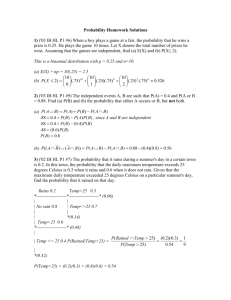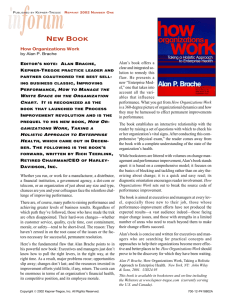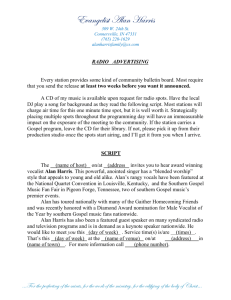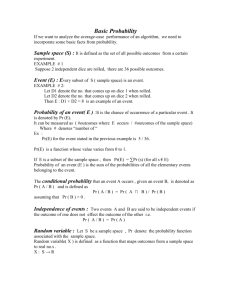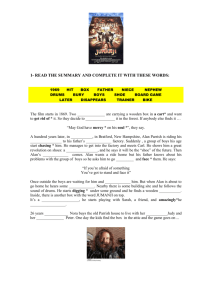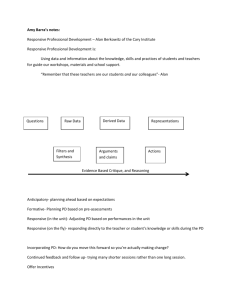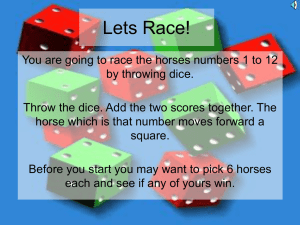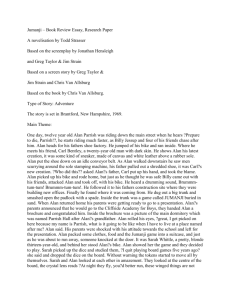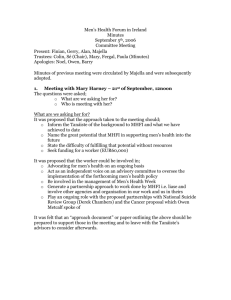Probability Homework: IB HL Problems
advertisement
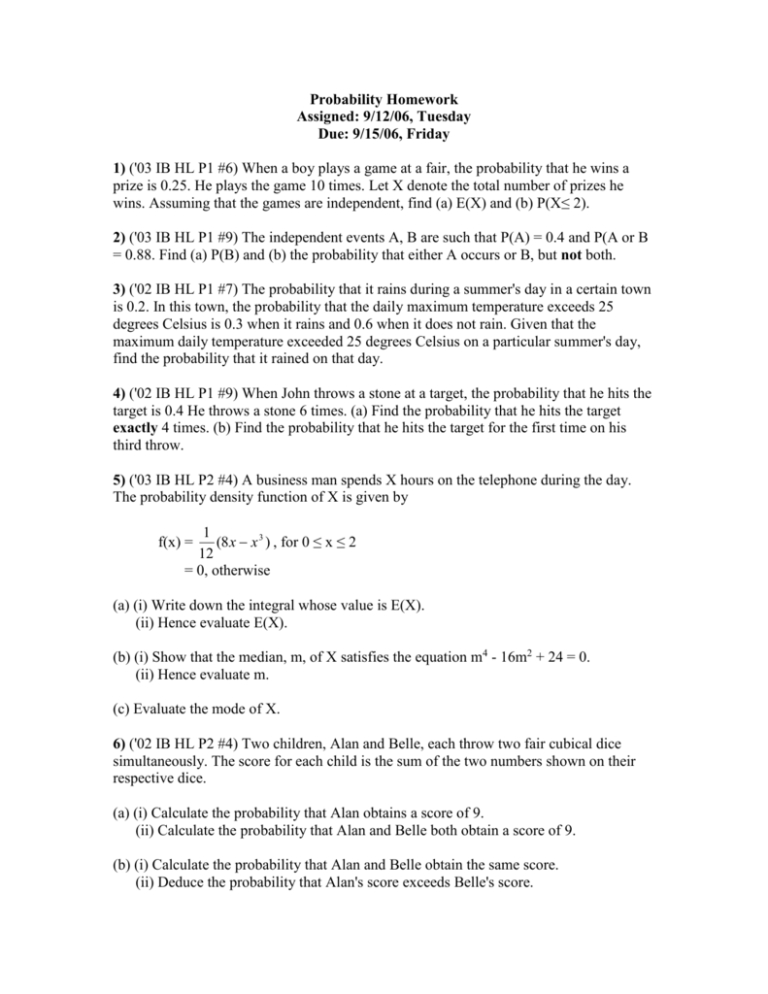
Probability Homework
Assigned: 9/12/06, Tuesday
Due: 9/15/06, Friday
1) ('03 IB HL P1 #6) When a boy plays a game at a fair, the probability that he wins a
prize is 0.25. He plays the game 10 times. Let X denote the total number of prizes he
wins. Assuming that the games are independent, find (a) E(X) and (b) P(X≤ 2).
2) ('03 IB HL P1 #9) The independent events A, B are such that P(A) = 0.4 and P(A or B
= 0.88. Find (a) P(B) and (b) the probability that either A occurs or B, but not both.
3) ('02 IB HL P1 #7) The probability that it rains during a summer's day in a certain town
is 0.2. In this town, the probability that the daily maximum temperature exceeds 25
degrees Celsius is 0.3 when it rains and 0.6 when it does not rain. Given that the
maximum daily temperature exceeded 25 degrees Celsius on a particular summer's day,
find the probability that it rained on that day.
4) ('02 IB HL P1 #9) When John throws a stone at a target, the probability that he hits the
target is 0.4 He throws a stone 6 times. (a) Find the probability that he hits the target
exactly 4 times. (b) Find the probability that he hits the target for the first time on his
third throw.
5) ('03 IB HL P2 #4) A business man spends X hours on the telephone during the day.
The probability density function of X is given by
1
(8 x x 3 ) , for 0 ≤ x ≤ 2
12
= 0, otherwise
f(x) =
(a) (i) Write down the integral whose value is E(X).
(ii) Hence evaluate E(X).
(b) (i) Show that the median, m, of X satisfies the equation m4 - 16m2 + 24 = 0.
(ii) Hence evaluate m.
(c) Evaluate the mode of X.
6) ('02 IB HL P2 #4) Two children, Alan and Belle, each throw two fair cubical dice
simultaneously. The score for each child is the sum of the two numbers shown on their
respective dice.
(a) (i) Calculate the probability that Alan obtains a score of 9.
(ii) Calculate the probability that Alan and Belle both obtain a score of 9.
(b) (i) Calculate the probability that Alan and Belle obtain the same score.
(ii) Deduce the probability that Alan's score exceeds Belle's score.
(c) Let X denote the largest number shown on the four dice.
4
x
(i) Show that P(X ≤ x) = , for x = 1,2,3,4,5,6
6
(ii) Copy and complete the following probability distribution table.
x
P(X = x)
1
1/1296
(iii) Calculate E(X).
2
15/1296
3
4
5
6
671/1296
